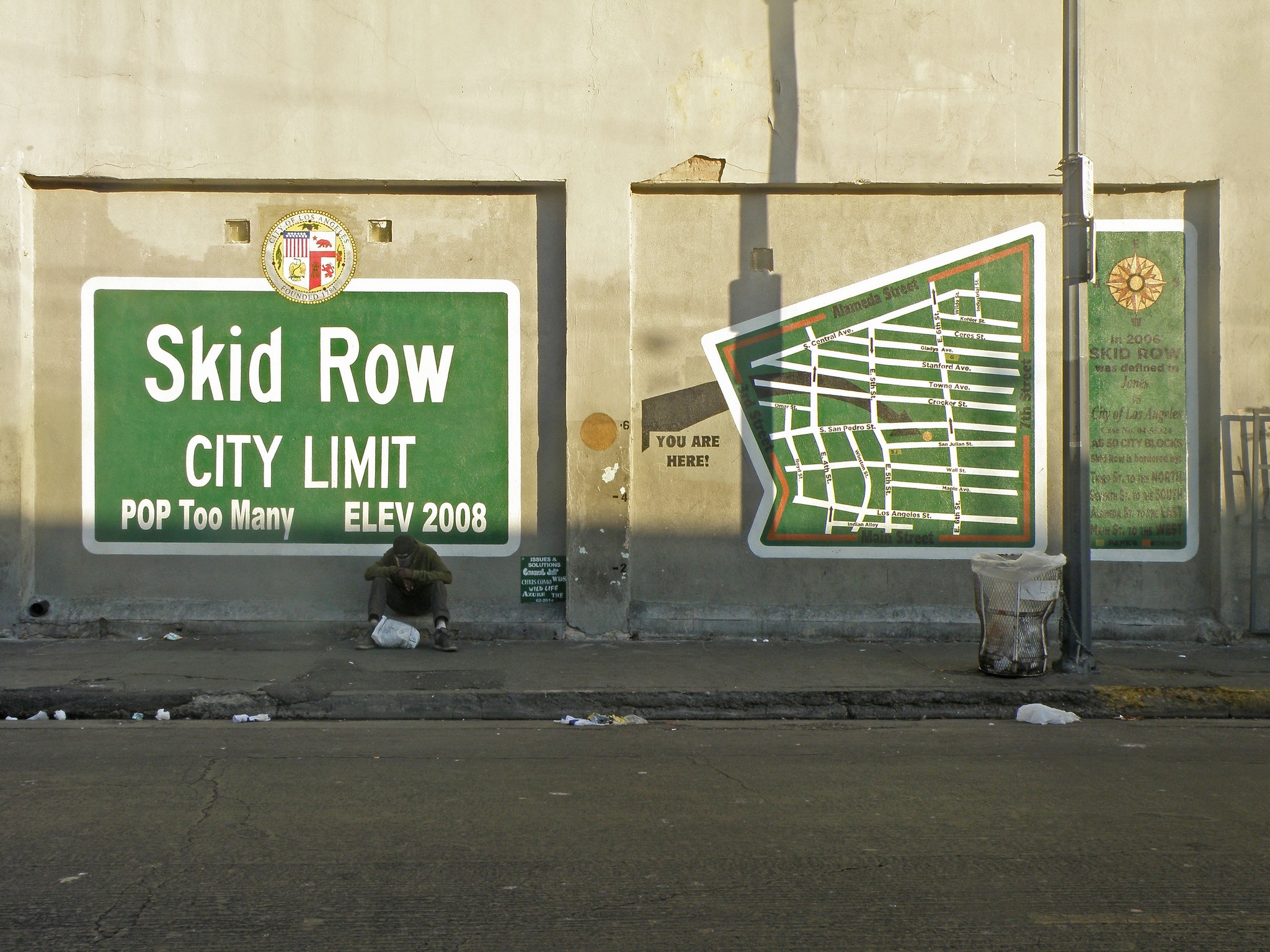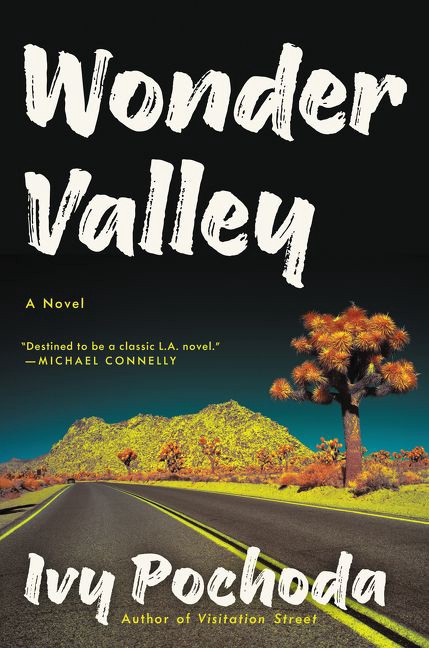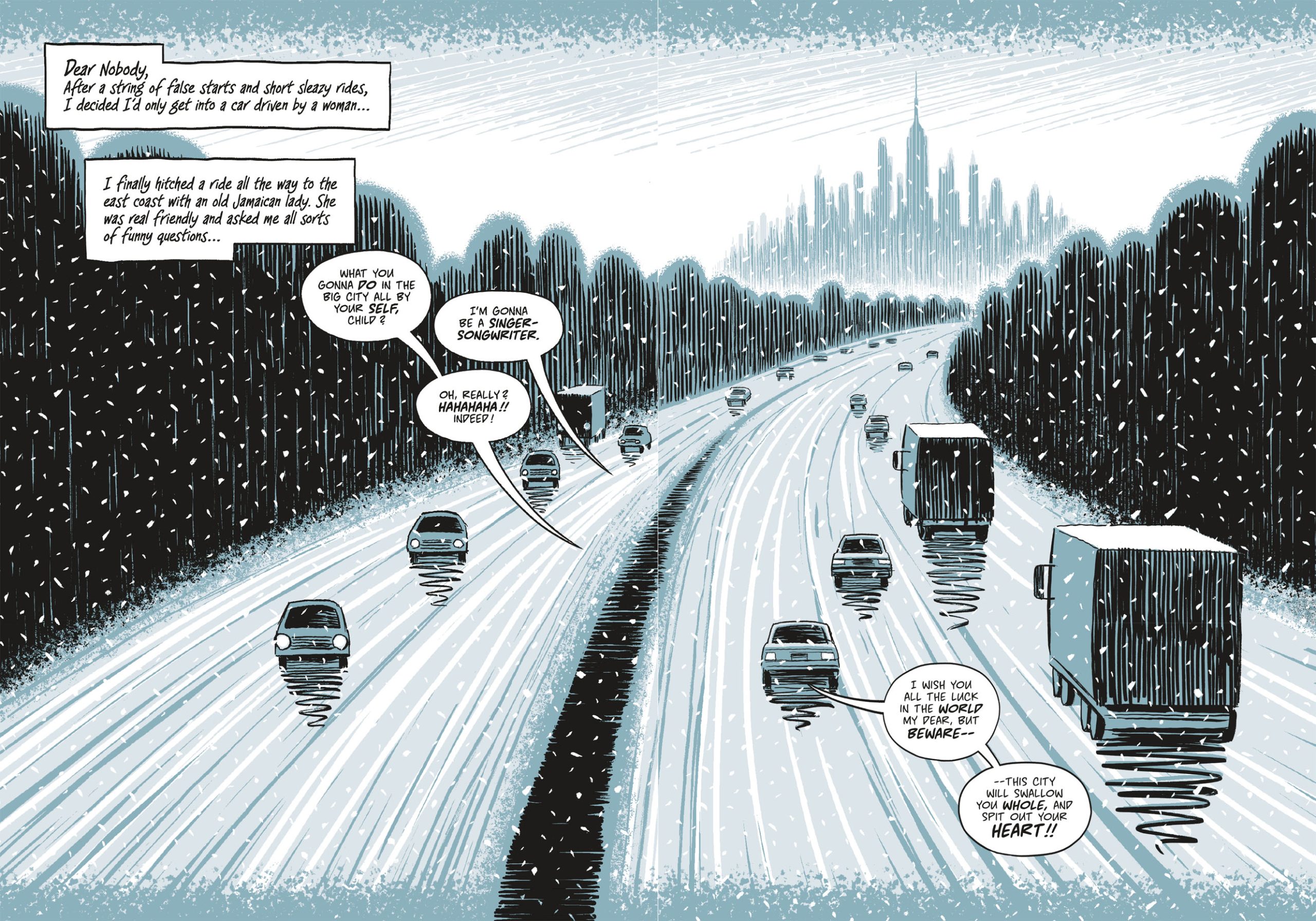interviews
A Naked Man Running Through Traffic, and Everything Else You Need to Know About L.A.
In ‘Wonder Valley,’ Ivy Pochoda steeps her characters in the grit and mystery of Skid Row, Los Angeles

Ivy Pochoda is obsessed with place. All three of her novels have been set in the city she was living in at the time: Amsterdam, Brooklyn, and now, with Wonder Valley, Los Angeles. The largest city on the west coast, tinsel town is known for its glitz, glam, and grittiness, all of which lends itself to rich noir fiction.

With Wonder Valley, Pochoda has found a new balance: she explores characters using the same searing eye with which she observes locations. The novel opens with a naked man running through a traffic jam on a highway and the event seeps into the world and imaginations of a cast of characters, irrevocably threading together their lives. Pochoda steeps juvenile delinquents and desert commune dwellers alike in her enchanting rendering of Los Angeles, and soon, the coalescence of these strangers starts to feel kismet.
I spoke with her just after her book was published and took a deep-dive into what makes Los Angeles so distinctive, how environments shape people — and her characters — and how, for her writing, place reigns supreme.

Adam Vitcavage: You’ve been in Los Angeles, where Wonder Valley takes place, for almost a decade now. How has living in L.A. changed your perspective of the world and shaped your writing?
Ivy Pochoda: I don’t think it has changed my perspective on the world, really, it’s a place like any other. It’s been really great to live there and write because it’s a lot more competitive and a lot more pressure to write novels in New York City compared to Los Angeles. There is a great literary community here that is vibrant and exciting. I feel like it’s a fun place to write because I can distance myself from the publishing and business side of writing.
Also, one of the cool things about moving to LA was that I knew it through books. Moving to the city and recognizing places I had read about and discover it in person has been amazing.
The Writing Life on the Road: Rocio Carlos’ Los Angeles
AV: L.A., for me, is a conundrum. I have friends and cousins living all over the city and I feel like no one knows what the real LA is. Have you discovered it during your time there?
IP: The interesting thing about L.A. is that it’s different for everybody. Places like Echo Park and Silver Lake are definitely — and I know this is a reductive word — but they’re more of a “hipster” and younger part of L.A. Like the new Brooklyn, not the old Brooklyn; Brooklyn isn’t hipster anymore. I moved to Echo Park when I first moved to L.A. and really enjoyed it.
My L.A. is right there: a gritty and beautiful neighborhood.
You can really make your experience in L.A. your own. My slice of life in L.A. is quite different than many of my friends. I live in an area that is in the middle of the city on the southern side. It’s a neighborhood that was very affluent when it was built in 1900s. When they built the 10 highway, it cut the neighborhood in half and it fell on hard times. It was really run down and now it’s becoming revitalized. It wasn’t an area a lot of people in L.A. considered a place you want to live. My L.A. is right there: a gritty and beautiful neighborhood.
I don’t spend a lot of time on the west side and I spend zero time in Hollywood. Those places lurk in the realm of fantasy for me. If you read about New York, a book can only travel around so far because Manhattan has small boundaries. You can go from uptown to downtown or Lower East Side to the Upper West Side in the course of a novel. A novel in L.A. can be specifically about a neighborhood. In Day of the Locust (Nathaneal West’s 1939 novel set in Hollywood), you don’t really leave Hollywood and Vine or up in the Hills. My book mostly just hangs out in Skid Row.
If you really want to learn a lot about the city, I suggest reading Michael Connelly and Walter Mosley. Their books are about detectives or private investigators who traverse the whole city.
AV: So, the majority of this novel takes place in Skid Row. What’s your connection with the area?
IP: I’ve been teaching creative writing at the LAMP arts program in Skid Row for four years and I used to live on the far side of Skid Row in the Arts District so I spent a lot of time walking the area. Skid Row divides Downtown L.A. from the Arts District and I also spent a lot of time downtown. I got very interested when I walked or rode my bike through it; the social structure to it is fascinating. There is a lot of chaos as well as a lot of community.
AV: Was it during that time when Wonder Valley started to percolate?
IP: I started to write the book when I was still living in Echo Park, about the same time I started teaching the class in Skid Row. In in Echo Park, there’s sort of an ad-hoc homeless community of camper vans. I started writing about that kind of community, and then, when I began visiting Skid Row, I saw a lot of the same thing — in fact, more of it. I was interested in people who live off the grid and out of the norms of society. Once I started to spend a lot of time in Skid Row, the novel really took off from there.
I was interested in people who live off the grid and out of the norms of society.
AV: When did you think of the opening prologue with the naked man?
IP: Sometimes when I think of writing a novel, I like to have a part that can stand alone and just be. One of my favorite pieces of writing is Pafko at the Wall, the novella that opens Don DeLillo’s Underworld. It sets the tone for the whole book. It’s set in a baseball game and I love how he just tells the whole story of the city through this baseball game. I wanted to find something that would tell the whole story of Los Angeles.
This idea of a naked man running through traffic is based on something I remember hearing about from high school. I tangentially knew a guy who ran across the Brooklyn Bridge and was hit by a car and killed. I remember hearing the story from my friends who were with him at the time, but I also heard about it from people I knew who just happened to be jogging over the bridge. I loved the idea that this event traversed the entire borough and people were seeing it from different perspectives and angles.
Support Electric Lit: Become a Member!
AV: This book uses different perspectives to tell a story and it jumps back and forth between time. How did you get to this structure?
IP: It’s because I’m wildly undisciplined and plot is the last thing I think about when writing a novel. I’ll write something and I won’t know where it’s going so it’s always easier to write a new section or a new character. I have never outlined anything that I have written. One time I tried and it was so formulaic and boring. I love being able to follow my characters and find my story that way. You want a good ending for your characters, but it’s hard if you have to be true to your story.
Originally, I started writing about Skid Row. I don’t remember exactly what that draft was about, but there were grifters. Then I rented a cabin in the desert near Wonder Valley and the desert leaked into the story. I figured I had to tie it all together somehow. So, for me, the structure came from not having a specific outline or a plot that I was following. It created an interesting panorama for a story to come from different angles. I knew the angles were all going to be part of the same book, but I had no clue how everything was going to come together.
I have never outlined anything that I have written.
AV: Your characters are so vivid. For readers like myself and writers like you, characters are so important to a narrative, more so than the average “plot pyramid.” How do you find success creating such interesting and wide ranging characters?
IP: I wish I knew the answer. I don’t know where these people come from. A lot emerged from that opening scene with the naked man in traffic. I was thinking about all of the people who would be in the traffic jam. I hear the voices of people.
But you started this question about what your readers look for in a book. For me it’s place. I want to write about a place. Then I figure out the voices that best represent the place. Place reigns supreme.
AV: Your first two books were about Amsterdam and Brooklyn, where you’ve previously lived. Will you continue to write books about where you’ve lived since place is so important to you?
IP: I feel like I have to. Place is what I want to write about. I started my first book The Art of Disappearing in Las Vegas, but I had to move it to Amsterdam because I have to write about what’s outside my window. I think it’s very difficult, and I know it’s not impossible because people do it all of the time, to write about places you only tangentially know.
I have to write about a place that is deeply engrained in my subconscious.
I have to write about a place that is deeply engrained in my subconscious. I have to live where I want to write about, so it’ll be Los Angeles again. I can’t imagine writing about Brooklyn again. LA is so wild and unexplored. That’s the cool thing about living there: there’s always a sense of discovery.
AV: You don’t outline and place is important to you. Do you spend hours upon hours walking around?
IP: There is this amazing thing called Google Maps when I don’t feel like leaving the house. I knew Skid Row pretty well because I rode my bike through it every day. When I wrote about Red Hook [in Visitation Street], I knew that pretty well. I am yet to write about a place where I have to do research. However, I think I’m going to have to with my next book because I want to write something about my neighborhood and farther south and I don’t know it other than driving through it.
AV: So your next book will be about your neighborhood?
IP: Definitely in my neighborhood. I’m not really sure beyond that, but it’s going to be a crime-heavy book. That’s all I know.










